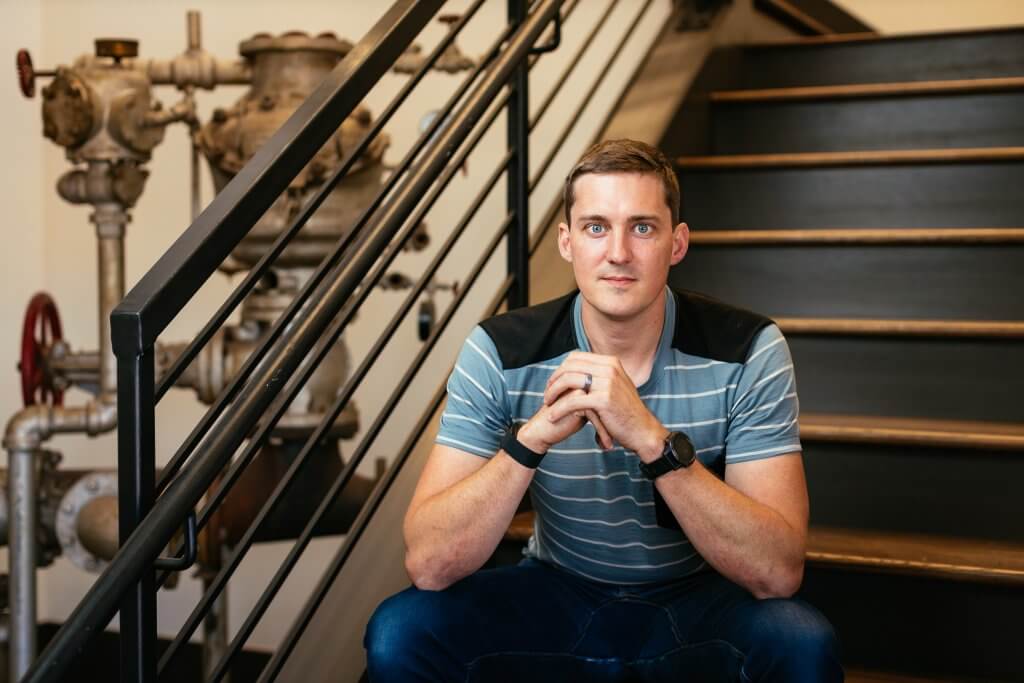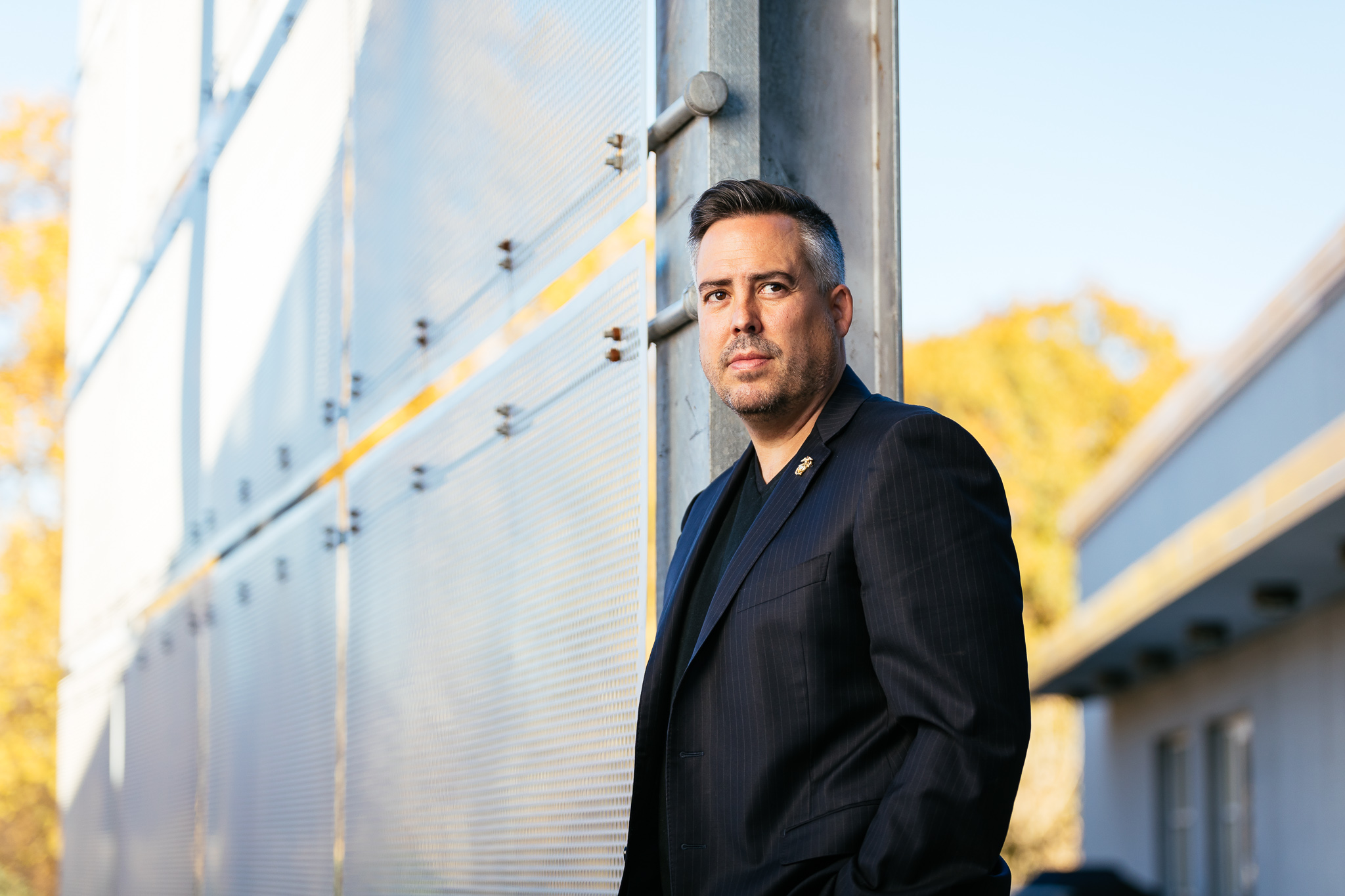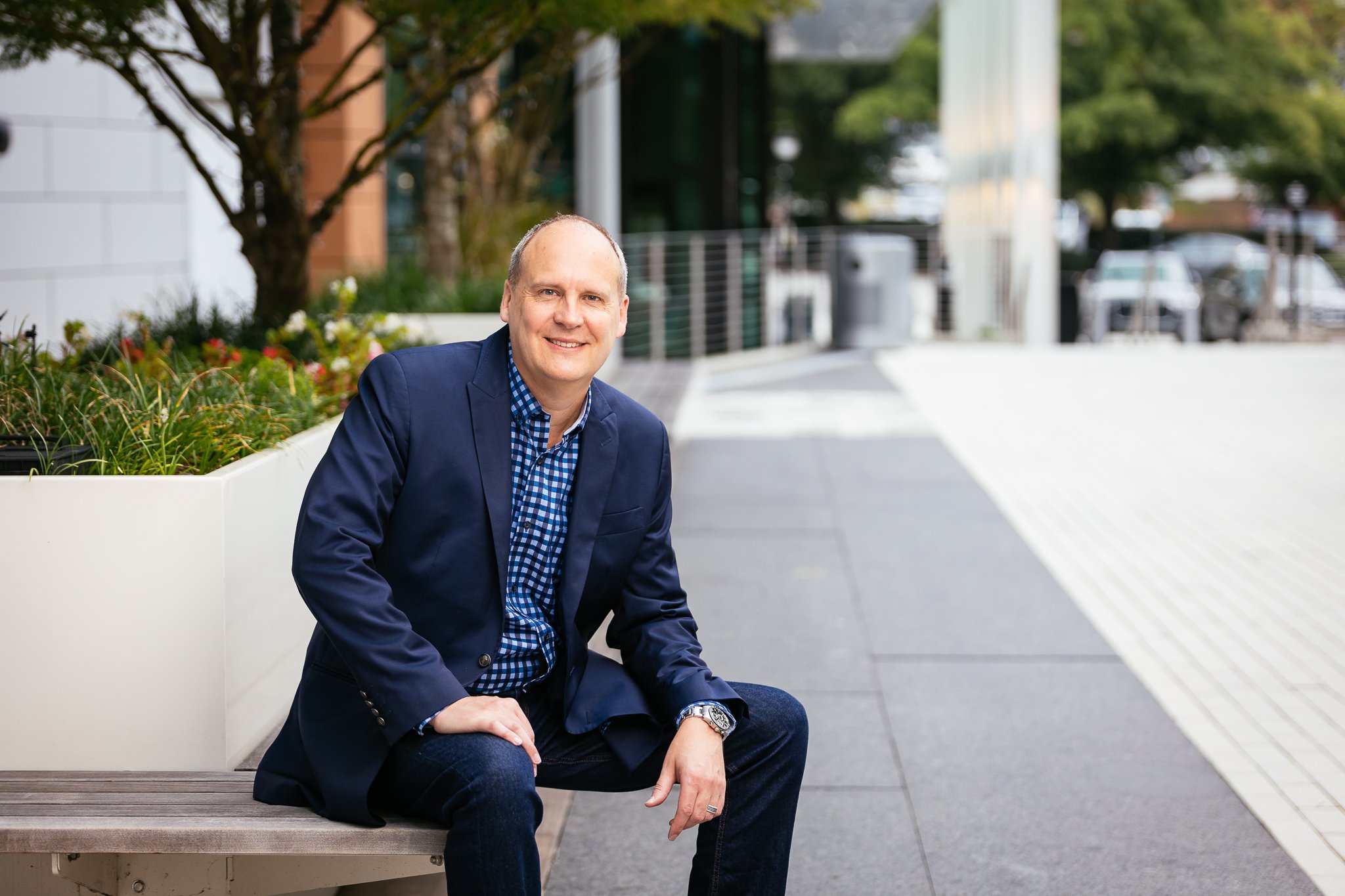Shane Grivich on Pursuing a Goal with Resilience
Scaling a new business is hard. Scaling a healthcare company when the government forces you to adjust your product and service every year is nearly...
4 min read
Written by Caroline Jennings, Oct 14, 2020

This post is part of The Founder Factor, where we bring you behind the scenes with South Carolina’s most impactful entrepreneurs so that you can discover the strategies, ideas, and mindsets you need to unlock your next business breakthrough.
It’s no secret that Eric Dodds is a master of business growth.
He co-founded The Iron Yard in 2012 and in just five years’ time grew it to the largest in-person code school in the world. After a successful exit, he and two of his business partners – Peter Barth and Mason Stewart – founded three more companies centered on helping businesses collect, process, analyze, and take action on the data they need to grow. Now, Dodds is on the leadership team at RudderStack, where he heads up customer success and drives growth efforts for marketing.
To Dodds, data is one of the keys to successfully scaling growth in a business. He recalls one particular moment during his tenure with The Iron Yard that made this idea especially “real” to him.

“There was a board meeting where board members started asking some pretty challenging questions about why,” Dodds recalls. They wanted to know why certain markets were performing so well – was it because of specific company tactics or larger market dynamics?
Dodds was accustomed to hearing these kinds of questions when the numbers were bad, but he had never considered how important it was to be able to answer these questions when the numbers were good.
“The lesson I took away from this meeting is that it’s more important to be able to answer why something is working well than why it’s not working,” Dodds states. “When something is working well, you need to immediately figure out how to scale it.”
According to Dodds, that’s where data comes into play. “You describe the ‘why’ using data,” he explains.

After you identify a particular tactic or strategy that you believe is creating a positive outcome, Dodds recommends using good old-fashioned math to verify that there is statistical significance on that “input” producing the desired “output.” “That’s the point at which I would feel confident enough to put all of my eggs in the basket of something that’s working,” he says.
However, Dodds concedes that many companies – especially early-stage startups – simply don’t have enough data to achieve statistical significance. “There is this really interesting phase in the entrepreneurial experience where you start to feel signals from the market telling you that you are doing something valuable, but you don’t have enough data to know if and how you can scale it,” Dodd explains. “It’s both the most fun and maddening phase, because you’re making future predictions without a ton of data.”
According to Dodds, the best thing you can do in this phase is to keep your data collection efforts simple. “If you can’t define statistical significance, then what you’re doing is using a limited data set to try to separate signal from noise,” he explains. “The more variables you introduce into this equation, the harder it is to distinguish between signal and noise.”

For most companies, Dodds thinks that there are probably only two or three numbers that are important to focus on. “If you go beyond a handful of metrics that you use to track progress of the business and create accountability, you’ll start spinning your wheels,” he warns. “Lack of focus is absolutely the biggest silent killer of companies. I recommend getting a couple of numbers fully figured out, and then adding complexity from there.”
One of RudderStack’s advisors once told Dodds to think of a business as a little star in the universe. “He told me the only way you can make an impact is by concentrating all of your light in one direction. If you emanate light in a bunch of different directions, you’re dim,” Dodds reflects. “That was very helpful for me in terms of codifying the importance of focus.”
Dodds stipulates that collecting, analyzing, and acting on data is still going to be challenging, no matter how successful you are in drilling down on a few key variables. “Data is messy and hard,” he says. “There is no silver bullet, other than just doing the work.”

In scaling his own businesses and advising other companies on growth, Dodds has come to believe that this type of work should be someone’s full-time job. He thinks that people with a hybrid technical and business background are the best suited for the role.
“It’s someone who has the ability to sit down with the person who is making strategic decisions about the company and get a really good handle on what is important to know about the business,” he says. That person would then work with the engineering team to implement the technologies, processes, and data governance structures necessary to ensure the business is collecting the right data, the right way.
According to Dodds, most companies don’t invest enough in this hybrid data/growth role. “Most often, I see it being the side job of someone else in the organization,” he says. “What ends up happening with this setup is that someone has to go on a 3-day ‘bender’ of exporting data from various tools and trying to combine it in spreadsheets.” All of these human touchpoints are a huge waste of time – not to mention, they threaten the accuracy of the data.
“You can’t grow your business as fast, understand your customers as well, or optimize as quickly as you could if you don’t have a good handle on your data,” Dodds concludes. “The companies that figure this out will have a much better chance of thriving.”

Follow Eric on LinkedIn, or visit his personal blog at EricDodds.com
Designli leads clients through the design and development of complex digital products, bringing startups and entrepreneurs from “Vision to Version 1.” Ready to bring an app or web-app to life? We’re here to help.
The Founder Factor is brought to you by Designli (South Carolina’s top app development firm) and Word of Web (your partner in website strategy and design). Follow our content here on the Designli blog, or on YouTube, Spotify, or wherever you get your podcasts.
Subscribe to our newsletter.

Scaling a new business is hard. Scaling a healthcare company when the government forces you to adjust your product and service every year is nearly...

5 min read
A self-proclaimed “accidental entrepreneur,” Didi Caldwell successfully scaled her company by tapping into her natural optimism, saying yes to...

In a career that can often pull you in a thousand directions, Setzer has learned to remain disciplined in his goals and consistent in his pursuit of...